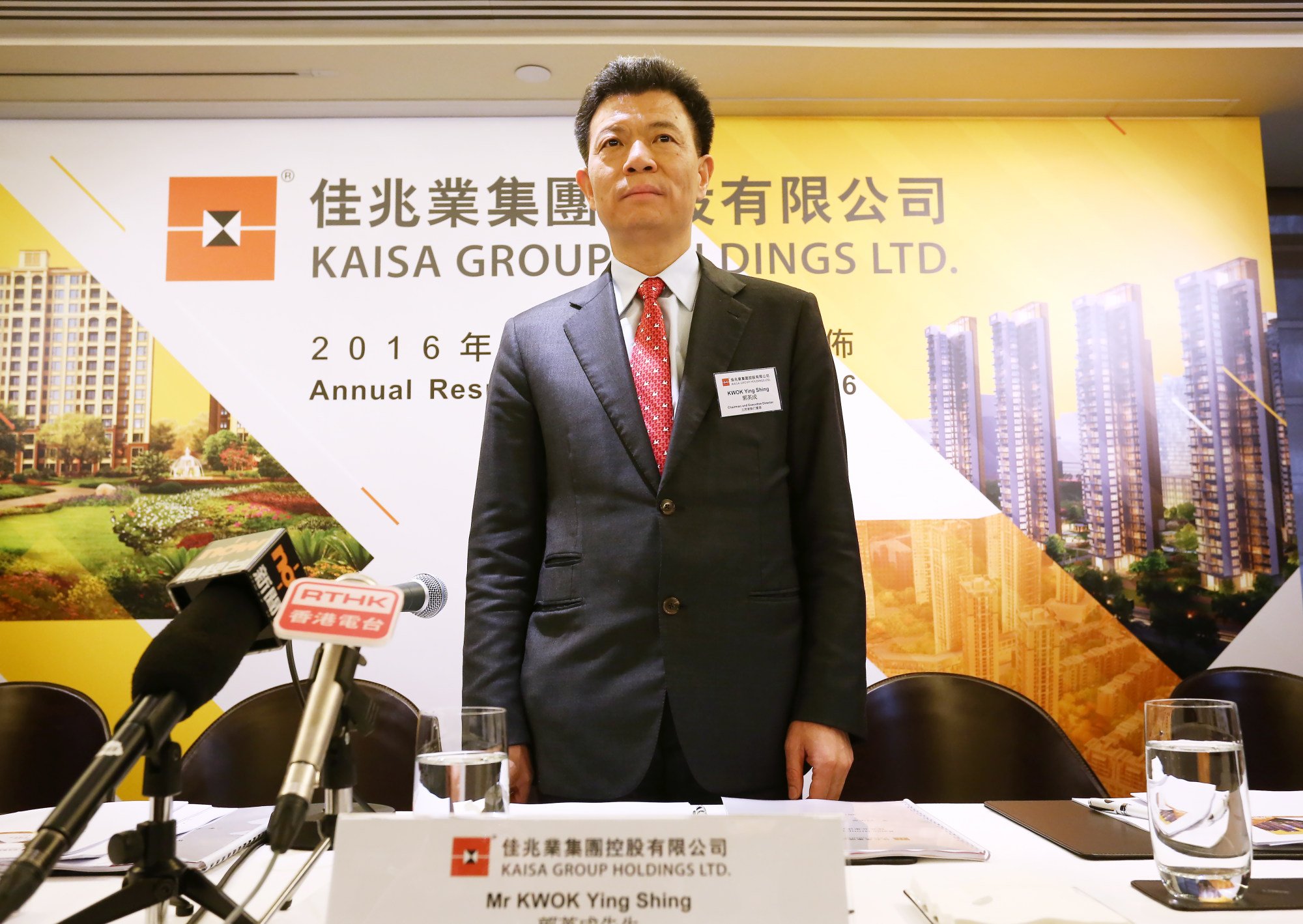Indebted Chinese developer Kaisa Group Holdings was granted another reprieve after a Hong Kong court on Monday adjourned a hearing, allowing the company more time to restructure its debts.
The next hearing will be on August 12, Justice Peter Ng Kar-fai announced, giving the Shenzhen-based developer more time to convince its debt holders and stave off liquidation. The Hong Kong court had adjourned the hearing several times, and the initial petitioner Broad Peak Investment dropped out from the case on March 8.
There is “no excuse” for another adjournment next time if no proposal is put forward between now and then, the judge said.
Citicorp International, as the trustee of an ad hoc group of bondholders, has replaced of the Singapore-based hedge fund company to become the latest petitioner. It filed a petition after the developer failed to repay US$750 million in notes, according to Kaisa’s company filings to the Hong Kong stock exchange.

Kaisa had 226.4 billion yuan of total liabilities and 232.8 billion yuan of total assets as of the end of December 2023, according to its 2023 annual results.
Kaisa’s Chairman Kwok Ying-shing returned to southern China’s Shenzhen, where Kaisa is based, to hold talks with local officials, according to separate reports by Reuters and the Chinese media outlet Caixin. He later inspected several of Kaisa’s projects in Beijing, Guangzhou, and Huizhou in late February and early March, according to the reports.
Shares of Kaisa fell by as much as 5.8 per cent to an intraday low of 12.9 Hong Kong cents after its liquidation was adjourned, extending their losses this year.
The case also came amid a wave that more Chinese major developers faces pressure of being liquidated, after Evergrande’s restructuring plan failed to convince its investors and was ordered a winding-up late this January.
Dexin China Holdings, a Zhejiang-based developer, received a winding-up order from a Hong Kong court two weeks ago, extending to the list of developers which failed to convince its creditors on their restructuring plan.
Real estate sector had led bond defaults in China over the past five years, with 59 issuers of the sector defaulting on 319 offshore bonds and 49 issuers defaulting on 194 onshore bonds since 2020, when Beijing’s “three red lines” was introduced, according to a S&P analysis.

